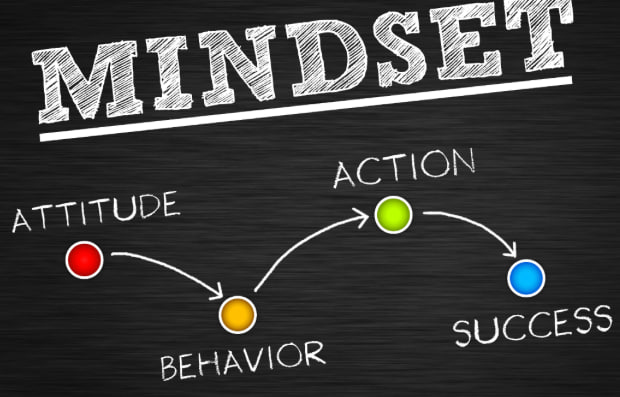The Power of Mindset: Unlocking the Next Level of Personal Productivity
What truly separates ordinary performance from extraordinary achievement? The answer isn’t luck or talent—it’s mindset.
Mindset is more than just a motivational buzzword; it’s the mental framework that defines how you see yourself, interpret challenges, and interact with the world around you.
This article explores how your mindset affects your productivity, influences your resilience, and impacts your ability to achieve your goals. Get ready to transform your thinking, turn every obstacle into an opportunity for growth, and unleash your true potential across every aspect of your life.
What Is Mindset? And Why It Matters for Performance
Your mindset is the mental lens through which you view yourself and your environment. It’s a collection of beliefs and thought patterns that guide your behavior, decisions, and ultimately, your results.
When you believe in your capacity to grow and adapt, you perform better, stay motivated longer, and handle challenges more effectively. A positive, proactive mindset strengthens focus, decision-making, and creativity—all critical drivers of productivity.
By contrast, a negative or limiting mindset can foster self-doubt, avoidance, and procrastination. It narrows your perspective and stifles initiative, making it harder to sustain momentum or achieve meaningful progress.
Common Types of Mindsets
- Growth Mindset: Believes that skills and intelligence can be developed through effort and learning.
- Fixed Mindset: Assumes abilities are static and unchangeable.
- Positive Mindset: Focuses on solutions, possibilities, and optimism.
- Negative Mindset: Centers on problems and fear of failure.
- Analytical Mindset: Driven by logic, structure, and critical thinking.
- Creative Mindset: Embraces innovation, imagination, and unconventional ideas.
Fixed vs. Growth Mindset: The Defining Factor in Productivity
The distinction between a fixed and a growth mindset can determine how you perform, adapt, and achieve in both personal and professional life.
Fixed Mindset
- Views intelligence and skills as innate traits.
- Avoids challenges to minimize the risk of failure.
- Tends to give up when faced with obstacles.
- Focuses on proving competence rather than improving it.
- Limits productivity by resisting change.
Growth Mindset
- Believes abilities can be strengthened through practice and learning.
- Sees failure as a learning opportunity, not a verdict.
- Actively seeks challenges and solutions.
- Prioritizes progress and skill development over perfection.
- Boosts productivity through self-motivation and adaptability.
Why Mindset Is the Cornerstone of Personal Productivity
Adopting a growth mindset allows you to reframe obstacles as opportunities and setbacks as stepping stones toward mastery.
Consider Elon Musk—a striking example of mindset in action. When SpaceX faced three failed rocket launches, the company teetered on the edge of collapse. But instead of giving up, Musk analyzed each failure, refined his approach, and ultimately achieved success. His growth-oriented mindset not only revived SpaceX but also reshaped the future of commercial space exploration.
This illustrates a universal truth: those who embrace challenges and remain flexible in their thinking unlock levels of productivity and innovation that others never reach.

How to Develop a Growth Mindset and Elevate Your Productivity?
Adopting a growth mindset significantly improves productivity, as it is based on the belief that skills can be developed through consistent effort and effective learning. This approach boosts self-motivation and strengthens the ability to face challenges with flexibility and efficiency.
1. Embrace Challenges as Growth Catalysts
See difficulties as opportunities to learn rather than threats to avoid. Each challenge strengthens your creativity, resilience, and problem-solving skills.
2. Persevere and Reframe Failure
Failure isn’t final—it’s feedback. Treat setbacks as data points guiding your next step. This perspective builds endurance and encourages innovation.
3. Commit to Continuous Learning
Make curiosity your daily habit. Acquiring new knowledge expands your capacity, enhances adaptability, and keeps you competitive in an evolving world.
4. Believe in Your Ability to Improve
Confidence in your potential fuels motivation. When you trust that effort leads to growth, you naturally sustain the energy and discipline that drive performance.
How Mindset Shapes Key Dimensions of Productivity?
1. Mindset and Time Management
A growth mindset promotes flexibility and prioritization. It helps you adapt your schedule to changing demands, stay organized, and complete tasks efficiently without burning out.
2. Mindset and Focus
Your mindset determines your ability to concentrate amid distractions. A positive, growth-oriented outlook enhances focus by aligning attention with purpose and progress.
3. Positive Mindset, Motivation, and Energy
Optimism fuels energy. When you maintain a positive mindset, challenges feel less draining and achievements more rewarding, creating a sustainable cycle of motivation.
4. Mindset and Problem-Solving / Decision-Making
A growth mindset encourages critical thinking and agility. It fosters objectivity, helping you make well-balanced, informed choices even under pressure.
Practical Strategies to Reframe Your Mindset for Greater Productivity
To shift your mindset for higher productivity, follow these practical strategies:
1. Identify and Challenge Limiting Beliefs
- Monitor your thoughts: Notice any recurring negative beliefs you have about yourself and your abilities.
- Analyze your feelings: Observe recurring negative emotions that hold you back.
- Review your behavior: Do you avoid challenges or give up easily?
- Question the belief: Is it true? What evidence supports or refutes it?
- Look for exceptions: When hasn’t this belief been true?
- Reframe it: Transform it into a positive, achievable thought.
2. Practice Positive Self-Talk and Constructive Thinking
Replace criticism with encouragement. Speak to yourself as you would to a trusted colleague—honestly, but with confidence and respect.

3. Set Realistic Goals and Celebrate Small Wins
Set clear, achievable goals. Don’t wait for major successes; celebrate every small accomplishment along the way. This strengthens self-motivation and reinforces a growth mindset.
4. Seek Inspiration and Learn from Others
Look for successful or inspiring individuals in your field or in the realm of personal development. Read their stories, learn from their mistakes and successes, and benefit from their advice. This broadens your perspective and motivates progress.
5. Prioritize Self-Awareness and Reflection
Regular reflection—through journaling, mindfulness, or meditation—deepens your understanding of yourself. This awareness strengthens emotional regulation, decision-making, and focus. Simply put, knowing yourself empowers you to control your thoughts and behavior, which directly impacts your success and productivity.
Mindset: The Hidden Engine of Success
Your mindset is not just a personal trait—it’s the foundation of sustained achievement. Adopting a growth mindset transforms the way you approach challenges, fuels resilience, and amplifies productivity across every dimension of life.
Are you ready to shift your perspective and unlock your next level of performance? Start today. Change your thinking—and watch how everything else begins to change with it.
This article was prepared by coach Hala Attar Zidane, a coach certified by Glowpass


 Main menu
Main menu





